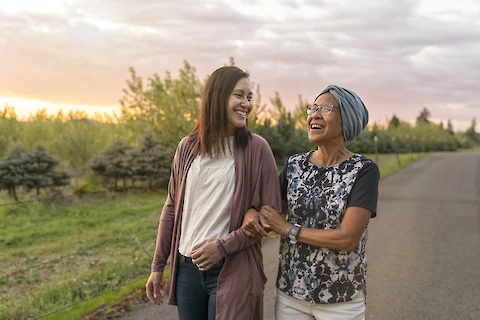
As caretakers and family members of seniors, it is increasingly important to be mindful of the mental health needs of our loved ones. Mental health includes emotional, psychological, and social well-being. While all ages are susceptible to mental illness, seniors can develop certain conditions or be more prone to depression. This can occur due to physical health issues or other factors such as the death of friends/family members and changes in their lifestyle. That's why taking care of seniors' mental health should be among our top priorities — whether we live with them or far apart.
The Mental Health Needs of Seniors
Seniors often require extra attention to maintain their mental well-being. Physical health issues and lifestyle changes may lead to depression, anxiety, or other forms of mental illness. Factors like the fear of losing independence, social isolation, and loneliness can impact seniors' mental health too. In some cases, cognitive decline due to Alzheimer's Disease or other conditions like dementia can affect their well-being. It is vital that family members and caretakers provide seniors with the emotional support they need while also providing access to resources for medical treatment if necessary.
Strategies for Supporting Seniors' Mental Health
There are several things caregivers can do to help enhance the overall mental health of seniors and make sure that they have access to the resources they need.
Developing a Support Network
Make sure seniors have access to a support network of family, friends, and professionals. Having someone that cares about them nearby can reduce seniors' feelings of loneliness or isolation. This can be as simple as bringing over children or grandchildren for visits or engaging in activities with other people from the same age bracket (e.g., bingo night).
Encouraging Physical Activity
Participating in physical activities such as walking, yoga, swimming, or gardening can help seniors stay active while improving their mental health. These activities can release endorphins and reduce stress levels. Do seek your doctor’s advice before starting any new exercise routine.
Utilizing Mental Health Resources
There are many free resources available for caregivers and families looking to provide better mental health care for seniors. These include counseling/therapy services, support groups/meetings organized by local organizations like Area Agency on Aging (AAA), government helplines tailored to senior citizens' needs, etc. Additionally, it is beneficial to research any programs offered through public benefits such as Medicare Part B reimbursement plans, which cover telehealth appointments related to mental health conditions. Sometimes, these may even be covered without additional cost if the designated care provider accepts those terms.
Providing Emotional Support
One of the most important things you can do for a senior is offer comfort when they need it most: during difficult times like illness and grief due to the loss of loved ones, for example. Furthermore, providing encouragement when a task seems overwhelming will go a long way toward helping your elderly relative manage daily stresses more effectively.
Encouraging and Aiding in Socialization
Seniors should find ways to keep socializing despite any limitations they may have due to mobility issues. This could include attending group classes at senior centers or community outings that build relationships with peers who are going through similar life experiences. Caregivers can help encourage socialization by ensuring that seniors can make it to those events and meetings.
Practicing Self-Care
Seniors need a time out for self-care: a chance to focus on their personal needs. Encourage senior loved ones to engage in regular self-care, including taking time out for meditation, getting adequate sleep at night, and more.
A Caregiver Can Help with Senior Mental Health
For many seniors, loneliness is a serious cause of mental health decline. An in-home caregiver can help reduce feelings of loneliness and, in many cases, improve seniors’ mental health. At Senior Helpers Grosse Pointe, we offer in-home care to seniors in Sterling Heights, Grosse Pointe, Clinton Township, Macomb County, and Roseville. Contact us today to learn more about those home care services and how they can help improve the mental health of your senior loved one.